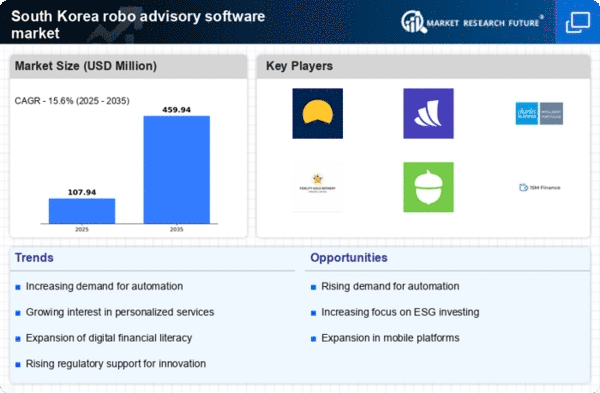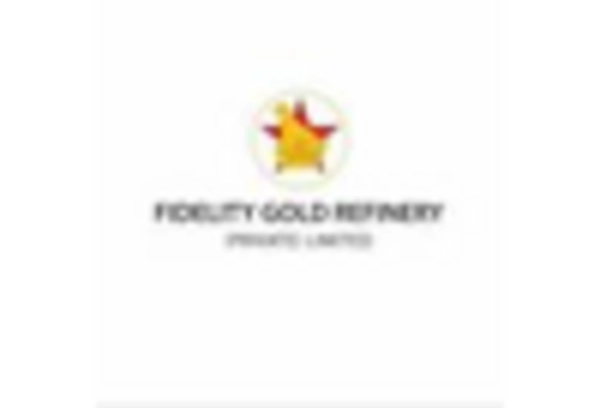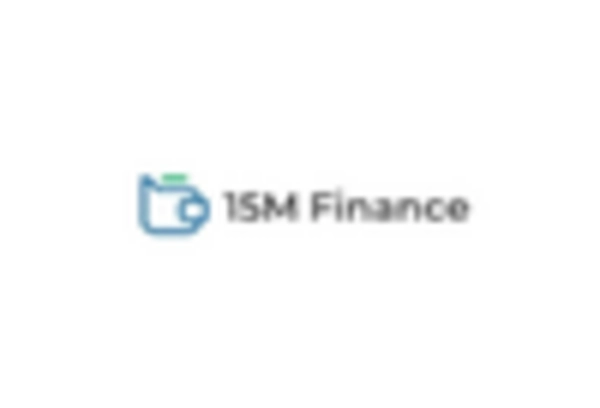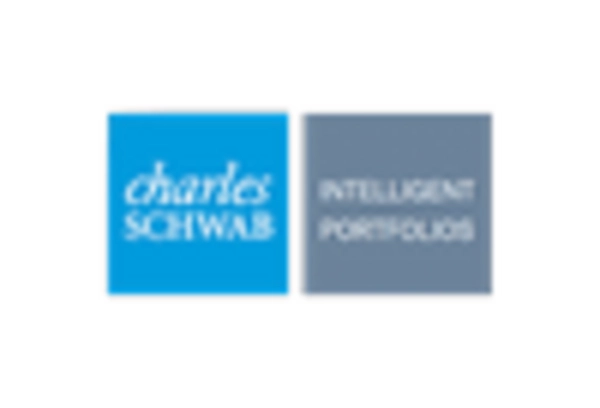Increased Financial Literacy Among Consumers
The rise in financial literacy among South Korean consumers is a crucial driver for the robo advisory-software market. As individuals become more knowledgeable about investment options and financial planning, they are more inclined to utilize robo advisory services. Educational initiatives and digital platforms have contributed to this trend, fostering a more informed investor base. This shift is likely to result in a 20% increase in the adoption of robo advisory services over the next few years, as consumers seek efficient and cost-effective ways to manage their investments. The growing understanding of financial products is expected to enhance the overall market landscape.
Technological Advancements in Financial Services
Technological advancements are significantly influencing the robo advisory-software market in South Korea. Innovations in artificial intelligence, machine learning, and big data analytics are enhancing the capabilities of robo advisors, allowing them to process vast amounts of data and deliver more accurate investment recommendations. This technological evolution is expected to propel the market forward, with estimates suggesting a market value of approximately $1 billion by 2026. As these technologies continue to evolve, they are likely to improve user experience and engagement, further solidifying the position of robo advisors in the financial services landscape.
Regulatory Environment Favoring Fintech Solutions
The regulatory environment in South Korea is increasingly supportive of fintech solutions, which is beneficial for the robo advisory-software market. Recent policies aimed at fostering innovation and competition within the financial sector have created a conducive atmosphere for the growth of robo advisory platforms. This regulatory support is likely to encourage new entrants into the market, enhancing competition and driving down costs for consumers. As a result, the market could see a compound annual growth rate (CAGR) of around 12% over the next five years, as more firms leverage the favorable regulatory landscape to offer innovative financial solutions.
Shift Towards Cost-Effective Investment Solutions
The shift towards cost-effective investment solutions is a prominent driver of the robo advisory-software market in South Korea. With traditional investment management fees often exceeding 1%, many investors are seeking alternatives that offer lower fees without compromising on quality. Robo advisors typically charge fees ranging from 0.25% to 0.75%, making them an attractive option for cost-conscious consumers. This trend is expected to contribute to a market growth rate of approximately 18% annually, as more individuals and institutions recognize the value of affordable investment management. The emphasis on cost efficiency is likely to reshape the competitive landscape of the financial services industry.
Growing Demand for Personalized Financial Services
The robo advisory-software market in South Korea is experiencing a notable surge in demand for personalized financial services. As consumers increasingly seek tailored investment solutions, robo advisors are adapting their algorithms to provide customized portfolios based on individual risk profiles and financial goals. This trend is reflected in the market's growth, with projections indicating a potential increase of 15% annually over the next five years. The ability to offer personalized advice at a lower cost compared to traditional financial advisors is driving this demand, making robo advisory platforms more appealing to a broader audience. Consequently, the market is likely to expand as more individuals recognize the benefits of personalized investment strategies.
















